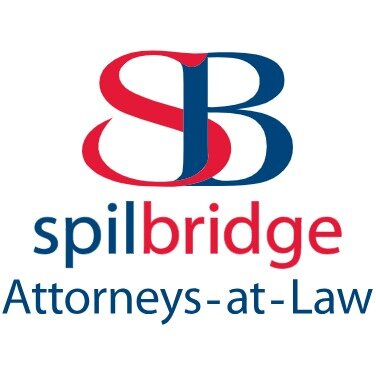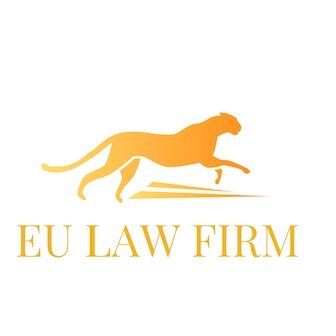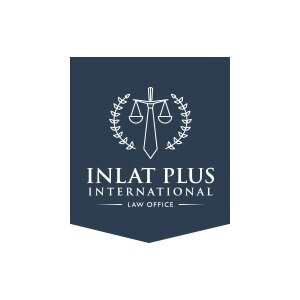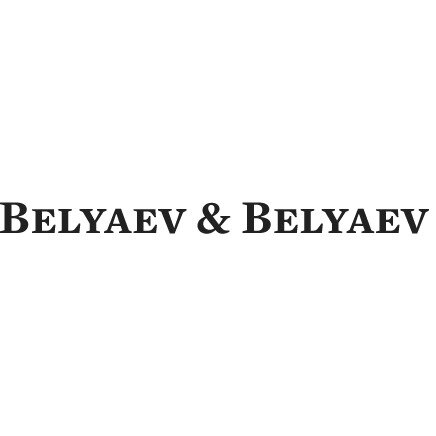Best Energy, Environment & ESG Lawyers in Latvia
Share your needs with us, get contacted by law firms.
Free. Takes 2 min.
Or refine your search by selecting a city:
List of the best lawyers in Latvia
About Energy, Environment & ESG Law in Latvia
Energy, Environment & ESG (Environmental, Social, and Governance) law in Latvia covers a broad range of legal frameworks designed to regulate natural resources, promote sustainable development, and ensure responsible business practices. Latvia, as a member of the European Union, has adopted key directives and standards from the EU, integrating them into national law. This means that businesses, local authorities, and individuals must navigate not only Latvian law but also comply with EU-wide regulations. The sector covers everything from renewable energy creation, resource management, pollution control, environmental protection, to corporate responsibility in environmental and social issues.
Why You May Need a Lawyer
Individuals and organizations may need legal assistance in Energy, Environment & ESG matters for several reasons:
- Applying for permits or licenses for energy production or resource extraction
- Understanding compliance requirements for environmental protection
- Addressing allegations of environmental law violations or pollution
- Navigating environmental impact assessment procedures for new projects
- Structuring investments in renewable energy projects
- Implementing or reporting on ESG criteria in corporate governance
- Dealing with disputes over resource usage or pollution responsibility
- Participating in public procurement related to energy or environmental projects
- Litigating or defending claims involving environmental harm or breaches of ESG standards
- Understanding recent EU and international law updates impacting Latvia
Local Laws Overview
Several key legal acts and regulations govern Energy, Environment & ESG in Latvia:
- The Energy Law sets the foundation for the regulation of energy production, transmission, and supply, including renewables like solar and wind.
- The Electricity Market Law provides legal protection for electricity producers and consumers and supports liberalization of the energy market.
- The Environmental Protection Law requires enterprises and individuals to avoid pollution, use resources responsibly, and comply with environmental permits.
- The Law on Pollution dictates conditions and procedures for controlling, permitting, and punishing polluting activities.
- The Law on Environmental Impact Assessment outlines the necessary evaluations for projects that may have significant effects on the environment.
- Forest Law, Water Management Law, and other resource-specific laws also apply depending on the context.
- ESG reporting is becoming increasingly relevant, especially for publicly listed companies and financial institutions, who must follow certain disclosure and governance standards.
- Migrant labor, health and safety, anti-corruption, and diversity are also growing components of ESG obligations.
As EU laws and directives develop, companies and individuals must pay close attention to changes affecting compliance and reporting in Latvia.
Frequently Asked Questions
What is ESG and why is it important in Latvia?
ESG stands for Environmental, Social, and Governance. It refers to a set of standards measuring a company’s impact on the environment, how it manages relationships with employees, suppliers, and communities, and the fairness of its leadership. In Latvia, ESG is increasingly required in public reporting, investment disclosures, and corporate governance criteria.
Do I need a permit to build a solar or wind energy installation?
Yes, most solar and wind energy projects require permits from local municipalities and environmental authorities. You may also need an environmental impact assessment depending on the size and location of the project.
How does Latvia regulate pollution and emissions?
Pollution and emissions are regulated mainly through the Law on Pollution, which requires permits for polluting activities and sets strict emission limits. Businesses must regularly report environmental data to authorities.
What are the consequences of violating environmental laws in Latvia?
Violations can result in fines, mandatory corrective actions, loss of licenses or permits, and in severe cases, criminal liability. Repeated or serious environmental harm may also trigger civil lawsuits from affected parties.
Are there incentives for using renewable energy in Latvia?
Yes, there are various national and EU-level incentives, including feed-in tariffs, co-financing options, and tax benefits to encourage renewable energy adoption. However, incentives may change, so legal guidance is recommended.
Which authority oversees environmental matters in Latvia?
The State Environmental Service (Valsts vides dienests) is the main regulatory body, along with the Ministry of Environmental Protection and Regional Development, and municipal environmental departments.
Can individuals or NGOs participate in environmental decision-making?
Yes, Latvian law provides mechanisms for public participation in decision-making on environmental issues, particularly during environmental impact assessments or when new permits are sought.
What is required for ESG compliance for companies in Latvia?
The requirements depend on the company's size and sector. Public companies and financial entities are subject to non-financial reporting directives, while other businesses are increasingly expected to align with best practices in sustainability and social responsibility.
How are disputes over environmental harm resolved?
Disputes can be resolved through administrative procedures, court litigation, or alternative dispute resolution mechanisms. Lawyers can assist in preparing cases, gathering evidence, and representing clients before authorities or courts.
What should I do if I receive a notice of violation from environmental authorities?
It is important to act promptly, review the notice carefully, and seek legal advice before responding. A lawyer can help you understand the implications, possible defenses, and your obligations to avoid further penalties.
Additional Resources
If you need more information or support, you may consider the following Latvian authorities and organizations:
- State Environmental Service (Valsts vides dienests)
- Ministry of Environmental Protection and Regional Development
- Public Utilities Commission (Sabiedrisko pakalpojumu regulēšanas komisija) for energy issues
- Latvian Environmental Protection Fund
- Latvian Renewable Energy Federation
- Latvian Chamber of Commerce and Industry
- Local municipal environmental departments
For legal advice, you may also contact Latvian law firms with expertise in energy, environment, or ESG matters, as well as legal aid offices for basic consultations.
Next Steps
If you believe you need legal assistance regarding Energy, Environment & ESG matters in Latvia, consider the following steps:
- Clearly outline your issue - gather relevant documents, permits, and correspondence
- Research or contact the relevant regulatory authority for initial information
- Consult with a qualified lawyer specializing in energy, environment, or ESG law
- Discuss possible outcomes, timelines, and costs involved in your legal matter
- Follow your lawyer’s advice on compliance, negotiation, or litigation as needed
- Stay informed about changes in relevant legislation or case law that may affect your position
Professional legal advice can help you navigate regulations, avoid penalties, and achieve your goals efficiently and in compliance with Latvian law.
Lawzana helps you find the best lawyers and law firms in Latvia through a curated and pre-screened list of qualified legal professionals. Our platform offers rankings and detailed profiles of attorneys and law firms, allowing you to compare based on practice areas, including Energy, Environment & ESG, experience, and client feedback.
Each profile includes a description of the firm's areas of practice, client reviews, team members and partners, year of establishment, spoken languages, office locations, contact information, social media presence, and any published articles or resources. Most firms on our platform speak English and are experienced in both local and international legal matters.
Get a quote from top-rated law firms in Latvia — quickly, securely, and without unnecessary hassle.
Disclaimer:
The information provided on this page is for general informational purposes only and does not constitute legal advice. While we strive to ensure the accuracy and relevance of the content, legal information may change over time, and interpretations of the law can vary. You should always consult with a qualified legal professional for advice specific to your situation.
We disclaim all liability for actions taken or not taken based on the content of this page. If you believe any information is incorrect or outdated, please contact us, and we will review and update it where appropriate.
Browse energy, environment & esg law firms by service in Latvia
Latvia Attorneys in related practice areas.
Browse energy, environment & esg law firms by city in Latvia
Refine your search by selecting a city.
















